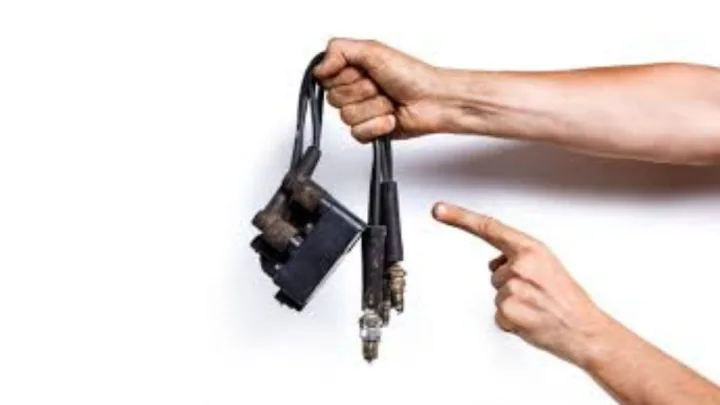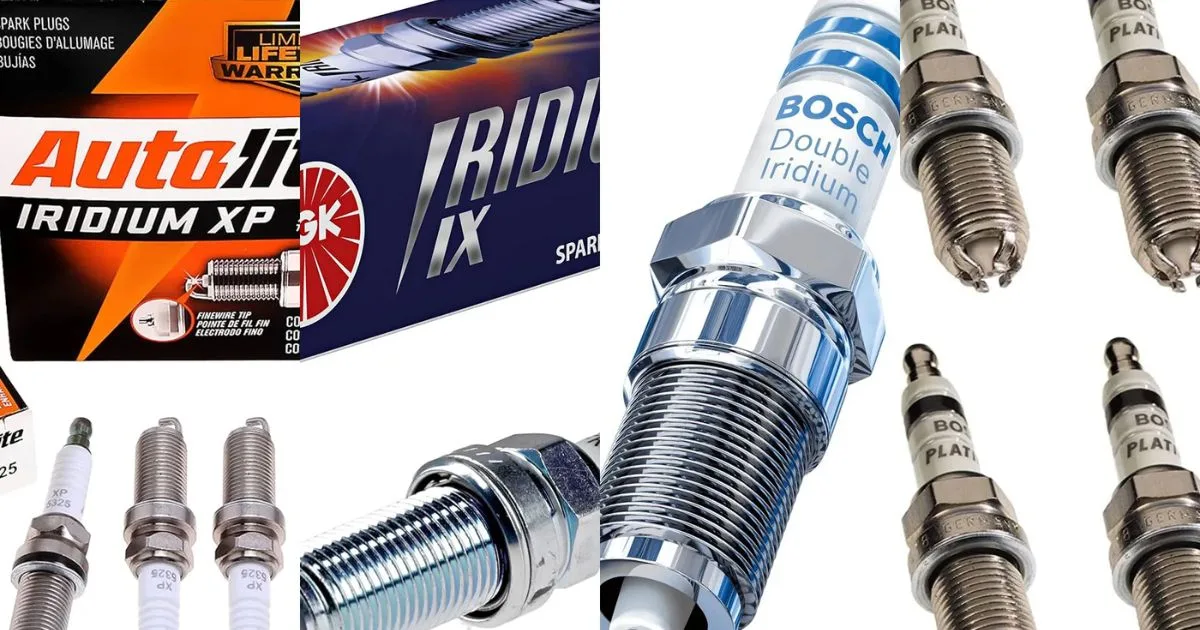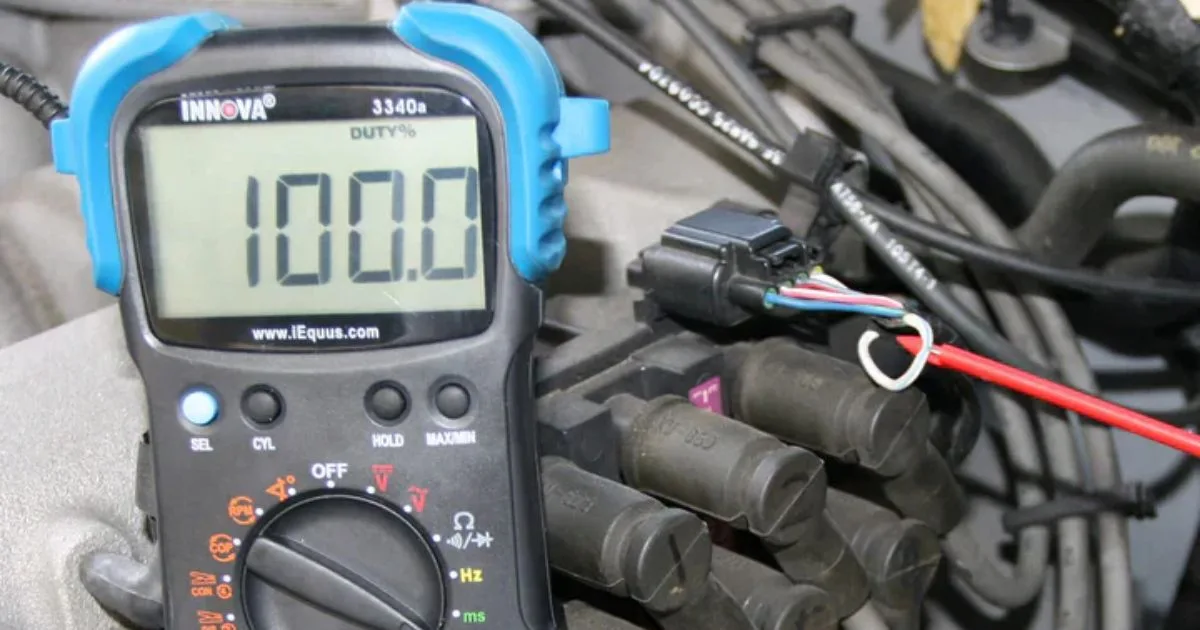
Choosing the right spark plug cable is essential for your vehicle's performance. This guide helps you find the perfect fit for your car.
Understanding spark plug cable compatibility can seem confusing. Different vehicles need different cables, and using the wrong one can affect your car's efficiency. This guide will simplify the process for you. We'll cover everything you need to know about spark plug cables. You'll learn about different types, how they work, and why compatibility is crucial. By the end, you'll feel confident selecting the right spark plug cable for your vehicle. Let's dive in and ensure your engine runs smoothly with the perfect spark plug cable.Introduction To Spark Plug Cables
Spark plug cables play a crucial role in your vehicle's ignition system. They carry electrical current from the ignition coil to the spark plugs. This ignites the air-fuel mixture in the engine. Without them, your car wouldn’t start. Understanding spark plug cables is vital for vehicle maintenance. They affect engine performance and efficiency. Let’s dive deeper into their purpose and why compatibility matters.Purpose And Function
Spark plug cables transfer high voltage from the ignition coil to the spark plugs. This voltage creates a spark that ignites the air-fuel mixture in the engine cylinders. The spark is necessary for the engine to run smoothly. Each cable is designed to handle high voltage. This ensures a strong and consistent spark. Weak or damaged cables can lead to misfires and poor engine performance. Regular checks and maintenance are crucial.Importance Of Compatibility
Compatibility is key for spark plug cables. Using the wrong cables can cause serious issues. Mismatched cables might not fit properly. This can lead to poor connections and engine misfires. Properly matched cables ensure optimal performance. They provide a reliable spark, which is essential for engine efficiency. Always check your vehicle's specifications before purchasing new cables. Incompatible cables can also cause electrical interference. This can affect other electronic components in your car. Choosing the right cables is essential for the overall health of your vehicle. Types Of Spark Plug Cables
Types Of Spark Plug Cables
Types Of Spark Plug Cables
Understanding the types of spark plug cables is crucial. Choosing the right cable ensures your vehicle performs at its best. Each type offers unique benefits. Let's explore the different types of spark plug cables.Copper Core Cables
Copper core cables are common in older vehicles. They provide excellent conductivity. This means better spark delivery to the engine. However, they can wear out faster. Copper cables need regular inspection and replacement.Silicone Cables
Silicone cables are more durable. They resist heat and chemicals well. This makes them perfect for modern engines. Silicone cables also reduce radio frequency interference. This keeps your car's electronics working smoothly.Performance Cables
Performance cables are for high-performance vehicles. They offer better spark delivery and durability. These cables can handle higher temperatures. They are ideal for racing or heavy-duty use. Performance cables ensure your engine runs efficiently.Factors Affecting Compatibility
Choosing the right spark plug cable for your vehicle involves several factors. Each vehicle has unique requirements. Understanding these factors ensures optimal performance and longevity.Engine Type
The engine type plays a crucial role in spark plug cable compatibility. Different engines need different cables. Whether your vehicle has a V6, V8, or a four-cylinder engine, each type requires specific cables. The ignition system's demands vary based on the engine's design and power output.Vehicle Model
Each vehicle model has unique specifications. Manufacturers design spark plug cables to match these specs. A cable that fits one model may not fit another. Always check your vehicle's manual. This ensures you get the right cable for your specific model.Cable Length And Diameter
The length and diameter of the cable are vital for compatibility. Cables come in various lengths to fit different engine layouts. The correct length ensures a proper fit without excess slack or tension. The diameter affects the cable's capacity to handle electrical current. A thicker cable can handle more current but may not fit all engine compartments. Ensure you choose cables that meet your vehicle's requirements.How To Identify Compatible Spark Plug Cables
Finding the right spark plug cables for your vehicle might seem like a daunting task, but it doesn't have to be. With the right approach, you can easily identify the perfect match for your car. Whether you're a seasoned mechanic or a vehicle enthusiast, following these simple steps will ensure your engine runs smoothly and efficiently. Let's dive into the specifics of how you can identify compatible spark plug cables.Manufacturer's Guide
One of the most reliable sources for identifying compatible spark plug cables is your vehicle's manufacturer's guide. This handy booklet, often found in your glove compartment, contains detailed information about your car's specifications, including the type of spark plug cables recommended by the manufacturer.- Check the Manual: Look for the section on ignition system specifications.
- Note the Part Number: The guide will typically list part numbers or specific types of cables.
- Follow Recommendations: Stick to the suggested brands and types to ensure compatibility and performance.
Online Compatibility Tools
In this digital age, why not use online tools to your advantage? Several websites and apps offer compatibility checkers that make the process a breeze.- Visit Reputable Websites: Websites like AutoZone, RockAuto, or the official website of your car's manufacturer often have compatibility tools.
- Enter Your Vehicle Details: Input your car's make, model, year, and engine size.
- Review the Results: The tool will provide a list of compatible spark plug cables, often with user reviews and ratings.
Professional Advice
Sometimes, it's best to turn to the pros. Mechanics and auto parts specialists have the expertise to guide you in the right direction.- Visit Your Local Mechanic: A trusted mechanic can inspect your vehicle and recommend the best cables.
- Ask at Auto Parts Stores: Staff at stores like NAPA or O'Reilly Auto Parts can offer valuable insights and suggestions.
- Join Online Forums: Car enthusiast forums are a great place to ask for advice and share experiences.
Common Compatibility Issues
Finding the right spark plug cable for your vehicle isn't always a walk in the park. Compatibility issues can creep up and leave you scratching your head. Ever wondered why your car isn’t running as smoothly as it should? Let's dive into some common problems that arise when your spark plug cables aren’t the perfect match.Misfires And Poor Performance
One of the most obvious signs of incompatible spark plug cables is engine misfires. Have you ever felt your car jerk or hesitate while driving? That’s likely a misfire. Misfires occur when the spark plug doesn’t ignite the fuel mixture at the right time. This can lead to poor performance and decreased fuel efficiency. Imagine setting out for a smooth ride and ending up with a bumpy, frustrating experience. Not fun, right?Engine Damage
Compatibility issues don’t just stop at poor performance. They can escalate to more serious problems like engine damage. When spark plugs don’t fire correctly, unburned fuel can enter the exhaust system. This can damage the catalytic converter and other engine components. And trust me, engine repairs can burn a hole in your pocket. So, always double-check that your spark plug cables are compatible to avoid costly repairs down the road.Electrical Interference
Did you know incompatible spark plug cables can cause electrical interference? It’s true! These cables can create electromagnetic interference that affects other electronic systems in your car. This interference can lead to erratic behavior in your radio, GPS, and even your car’s onboard computer. It’s like trying to tune into your favorite radio station and getting nothing but static. Annoying, right? To keep everything in sync, ensure your cables are perfectly matched to your vehicle’s specifications. In summary, using the wrong spark plug cables can lead to a cascade of issues, from misfires and poor performance to engine damage and electrical interference. Always take the time to ensure compatibility to keep your vehicle running smoothly and avoid unnecessary headaches. Steps To Replace Spark Plug Cables
Steps To Replace Spark Plug Cables
Steps To Replace Spark Plug Cables
Replacing spark plug cables is a simple task that can improve your vehicle's performance. Understanding the steps involved can save you time and money. Follow this easy guide to ensure your spark plug cables are correctly replaced.Tools Needed
Before you start, gather all necessary tools. You will need:- Socket wrench set
- Dielectric grease
- Torque wrench
- Screwdriver
- New spark plug cables
Safety Precautions
Always prioritize safety. Ensure the engine is cool before starting. Wear gloves to protect your hands. Disconnect the battery to prevent electrical shocks.Step-by-step Process
Follow these steps for a smooth replacement:- Locate the spark plug cables. They are connected to the engine and distributor.
- Remove one cable at a time. Twist and pull gently to avoid damage.
- Apply dielectric grease to the ends of the new cables. This ensures a good connection.
- Attach the new cable to the spark plug. Push it firmly until it clicks.
- Connect the other end to the distributor. Ensure it is secure.
- Repeat for each cable. Do not mix up the cables; they must go back in the same order.
- Reattach the battery once all cables are replaced. Start the engine to check the installation.
Maintenance Tips For Spark Plug Cables
Taking care of your spark plug cables is essential for the smooth running of your vehicle. Regular maintenance can prevent many issues, saving you time and money. In this section, we'll cover essential tips for keeping your spark plug cables in top shape. Let's dive in!Regular Inspection
Just like you wouldn’t ignore a check-up for your health, your spark plug cables need regular inspection too. A quick look every month can catch potential issues early. Check for any visible damage like cracks, burns, or wear and tear. These signs indicate that your cables might need attention soon. Tip: Do this check when your engine is cool to avoid burns.Cleaning Techniques
Keeping your spark plug cables clean is crucial for optimal performance. Dirt and grime can interfere with the connection, leading to misfires. Use a soft cloth to wipe off any dirt. For stubborn grime, a little bit of rubbing alcohol on the cloth can work wonders.- Always disconnect the cables before cleaning.
- Never use water as it can cause electrical issues.
- Allow the cables to dry completely before reconnecting.
When To Replace
No matter how well you maintain them, spark plug cables will eventually need replacing. But when? Generally, it's recommended to replace them every 30,000 miles or so. However, if you notice any of the following signs, it might be time to swap them out sooner:- Frequent engine misfires.
- Visible damage or corrosion.
- Decreased fuel efficiency.
Top Brands For Spark Plug Cables
Choosing the right spark plug cables for your vehicle can sometimes feel like finding a needle in a haystack. However, knowing which brands to trust can make all the difference. In this section, we’ll dive into the top brands for spark plug cables that are renowned for their quality, durability, and performance. These brands have earned their stripes in the automotive world, ensuring that your vehicle runs smoothly and efficiently.Ngk
NGK is a name that's often mentioned when it comes to spark plugs and cables. With a reputation for reliability, NGK spark plug cables are designed to withstand high temperatures and deliver consistent performance. They are crafted to meet the needs of various vehicle types, ensuring compatibility and durability.- Heat Resistant: NGK cables can handle high engine temperatures.
- Variety: Suitable for many vehicle models.
- Performance: Consistent spark delivery for better engine efficiency.
Bosch
Bosch is another heavyweight in the automotive industry, known for its high-quality products. Bosch spark plug cables are no exception. They are designed with precision to ensure optimal performance, making them a favorite among car enthusiasts and mechanics alike.- Durability: Built to last with strong materials.
- Precision Engineering: Ensures exact fit and reliable performance.
- Wide Range: Offers options for various vehicle types.
Acdelco
ACDelco has been a trusted name in the automotive parts industry for decades. Their spark plug cables are known for their dependability and performance. ACDelco ensures that their cables meet or exceed OEM specifications, providing peace of mind to vehicle owners.- OEM Quality: Meets or exceeds original equipment specifications.
- Dependable: Trusted by professionals and car owners alike.
- Compatibility: Wide range of compatibility with different vehicles.
Cost Considerations
When it comes to spark plug cables, one crucial aspect to consider is cost. The price of these cables can vary significantly, and understanding what you're paying for can help you make a wise decision. Let's dive into the cost considerations, including budget versus premium options, long-term investment, and where to buy these cables.Budget Vs. Premium Options
Everyone loves a good deal, right? But, when it comes to spark plug cables, cheaper isn't always better. Budget options are often made with lower-quality materials, which might not last long. You'll find these at your local auto parts store or online for a few dollars. They can do the job, but they might need replacing sooner. On the other hand, premium options are crafted from high-quality materials. They offer better performance and longevity. These might cost a bit more upfront, but they often save money in the long run by reducing the need for frequent replacements. Brands like NGK, Bosch, and Denso are known for their premium quality.Long-term Investment
Think of your spark plug cables as an investment in your vehicle's health. A good set can improve your car’s performance, fuel efficiency, and even reduce emissions. While the initial cost of premium cables might seem high, consider how much you save over time:- Fewer replacements
- Better engine performance
- Lower maintenance costs
Where To Buy
Now, where should you buy these spark plug cables? Here are some options:- Local auto parts store: Convenient for quick purchases, and you can get advice from staff.
- Online retailers: Websites like Amazon, RockAuto, and AutoZone offer a wide range of options. You can compare prices and read reviews to ensure you’re getting a good deal.
- Manufacturer’s website: Buying directly from the manufacturer ensures authenticity and sometimes, better deals.
Conclusion
Choosing the right spark plug cables matters for your vehicle's performance. Compatibility is key. This guide helps you understand how to match cables correctly. Always check the specifications for your vehicle. Proper cables ensure smooth engine function. Regular maintenance extends your vehicle's lifespan. Keep this guide handy for future reference. Stay informed and keep your engine running smoothly. Happy driving!Disclosure
Some links may be affiliate links. That means we may earn a small commission at no extra cost to you.